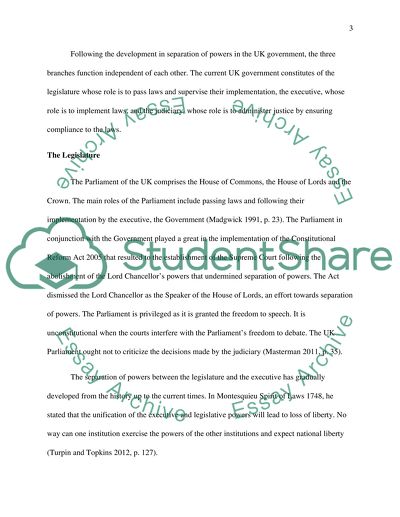Cite this document
(“Separation of Powers in the UK Essay Example | Topics and Well Written Essays - 1500 words”, n.d.)
Retrieved from https://studentshare.org/politics/1636859-what-is-the-separation-of-powers-how-does-it-work-in-the-united-kingdom
Retrieved from https://studentshare.org/politics/1636859-what-is-the-separation-of-powers-how-does-it-work-in-the-united-kingdom
(Separation of Powers in the UK Essay Example | Topics and Well Written Essays - 1500 Words)
https://studentshare.org/politics/1636859-what-is-the-separation-of-powers-how-does-it-work-in-the-united-kingdom.
https://studentshare.org/politics/1636859-what-is-the-separation-of-powers-how-does-it-work-in-the-united-kingdom.
“Separation of Powers in the UK Essay Example | Topics and Well Written Essays - 1500 Words”, n.d. https://studentshare.org/politics/1636859-what-is-the-separation-of-powers-how-does-it-work-in-the-united-kingdom.


